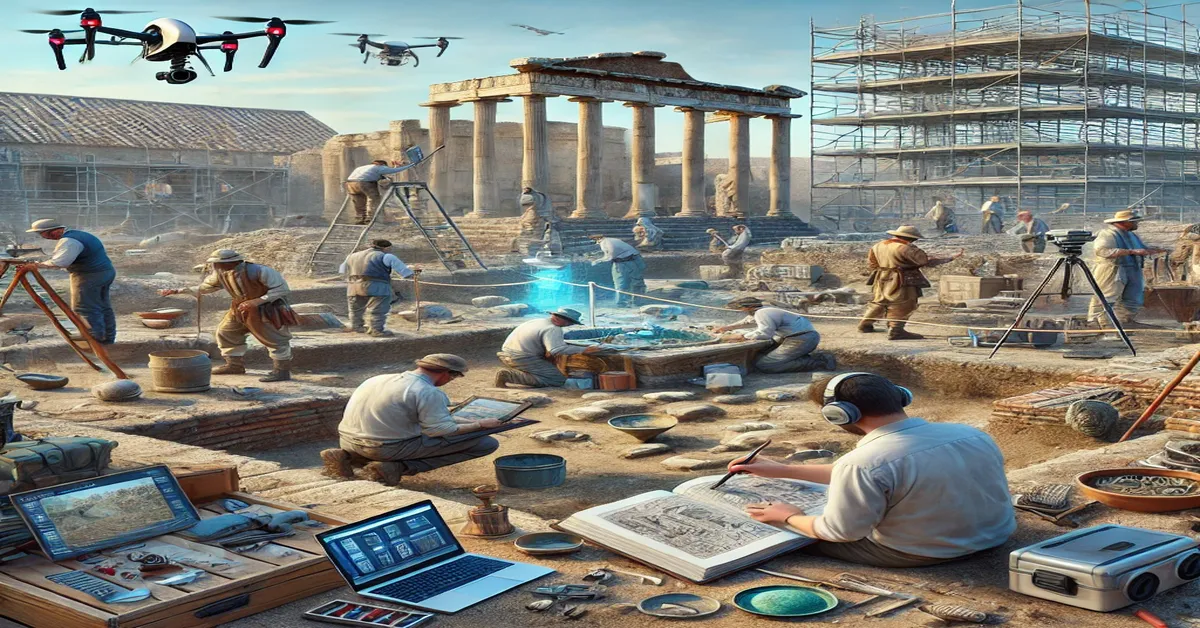It’s essential to safeguard and maintain sites to uphold a link with our past. These sites offer glimpses into history, enabling us to grasp the experiences of those who came before us. Archaeology consultation plays a significant role in uncovering, recording, and conserving these remnants of our legacy. In this article, we’ll delve into the impact of archaeology consultation on preserving sites and the valuable contributions it makes to the field.
1. Recording and Interpreting our History
Specialized archaeology consulting firms like Soar Environmental Consulting engage in surveys, evaluations, and excavations at various locations. Through documentation using records, photos, maps, and illustrations, these experts ensure that every minute detail is preserved for future generations’ analysis. They play a vital part in capturing information about civilizations that might otherwise have vanished forever.
2. Safeguarding Against Disruptions
Historical sites continually face threats from growth, infrastructure projects, or natural calamities. Archaeologists bring their skills to evaluate the impacts such endeavors could have on resources found at these locations. By reviewing proposed plans and offering suggestions, they contribute to striking a balance between development requirements and heritage conservation.
3. Ensuring Adherence to Legal Standards
In order to safeguard the significance of sites for cultural preservation purposes, many nations mandate strict compliance with regulations prior to any building or expansion near archaeological areas. Engaging the services of an archaeology consulting firm becomes imperative as they aid developers in meeting requirements through assessments or excavations in specified zones.
4. Fostering Community Participation and Education
While archaeology is commonly linked with excavation endeavors, archaeology consulting firms also prioritize community involvement! Numerous consultants actively engage residents near sites through initiatives such as public talks or workshops that educate individuals on the importance of their cultural heritage. These interactions not only enhance awareness but also encourage community members to take on roles as guardians of their local history.
5. Collaborating with Construction Endeavors
In situations where archaeological remnants are uncovered during construction undertakings, archaeology consultants intervene to develop preservation strategies. Through collaboration with developers and construction teams, they ensure that valuable artifacts or historical structures are meticulously excavated, documented, and preserved on-site or relocated when necessary. This partnership enables construction projects to progress while protecting elements from eras.
6. Conservation Plan Consultation
Similar to how architects work with conservation experts to safeguard historical structures, archaeology consultants also play a significant role in crafting thorough conservation plans for historical sites. They evaluate the site’s condition, identify risks from exposure to elements or human activities, and devise strategies for preservation methods like installing protective barriers or conducting regular monitoring.
7. Development of Tourism
Historical sites hold the promise of increasing tourism income by drawing in enthusiasts eager to explore treasures. Archaeology consulting companies often provide guidance to tourism organizations and local authorities on managing visitor interactions while minimizing any harm to the site’s authenticity. This input is crucial in striking a balance between promoting heritage exploration and practicing tourism.
8. Integration of Technology for Conservation
Archaeology consulting firms are leading the way in utilizing technologies such as LiDAR scanning and Geographic Information Systems (GIS) to support the preservation efforts at historical sites. These cutting-edge tools enable archaeologists to digitally map and analyze sites accurately, improving their comprehension of the layout, spatial connections, and historical significance. Through technology adoption, consultants can create models and virtual representations that aid in the preservation and accessibility of these locations.
9. Skill Education
As stewards of our heritage archaeology, consulting firms also contribute significantly to building skills and providing training opportunities. They organize workshops, seminars, and educational events to educate aspiring archaeologists and local communities interested in safeguarding heritage. By sharing their knowledge and experience, these professionals help cultivate a generation of experts who can continue safeguarding historical sites for future generations.
Conclusion
Archaeology consulting firms play a crucial role in protecting our sites. Through their expertise in documentation planning for protection and support for compliance engagement with communities, collaboration with construction teams, development of conservation strategies, and guidance on managing tourism activities, these professionals bring value to the field. Their efforts ensure that coming generations can explore the history of our past by preserving these traces of human heritage.











